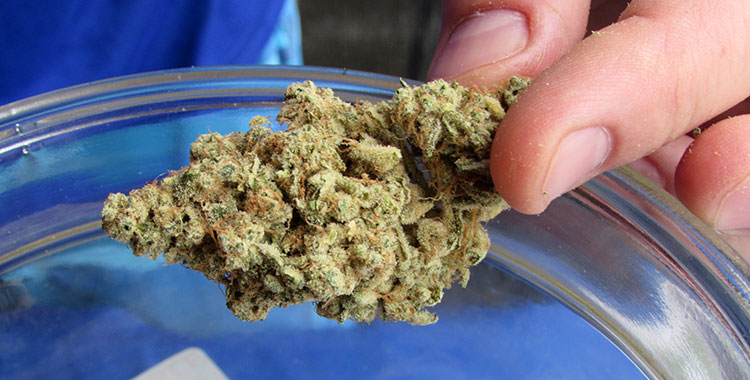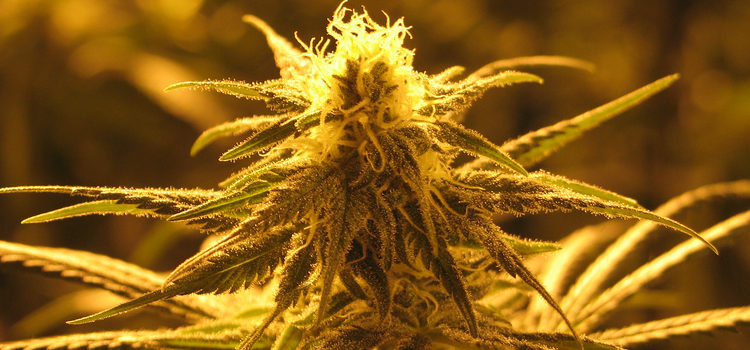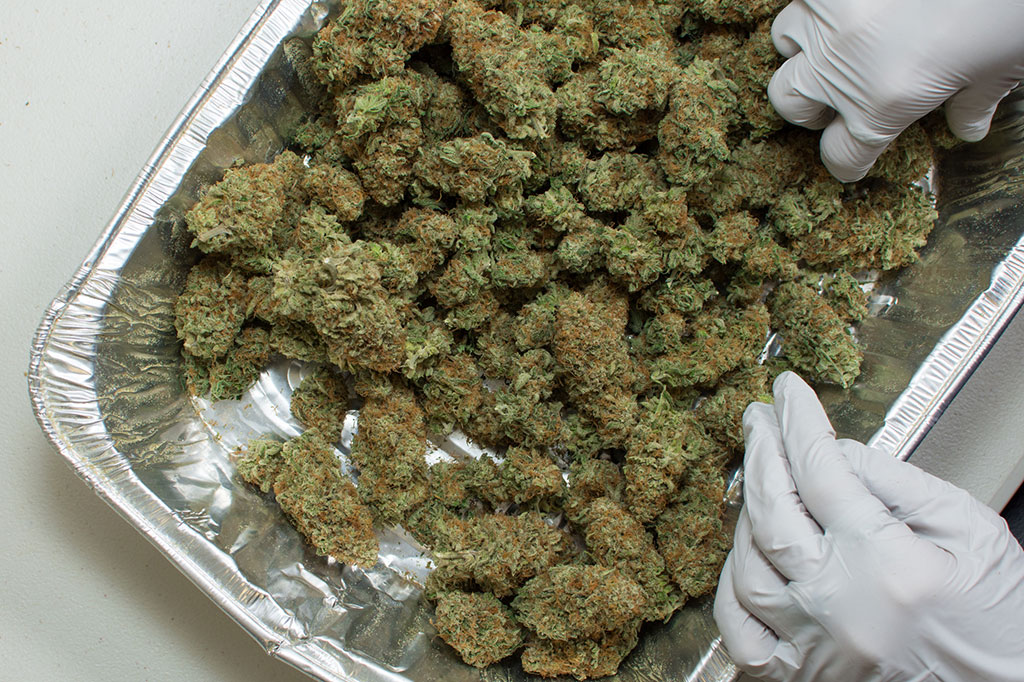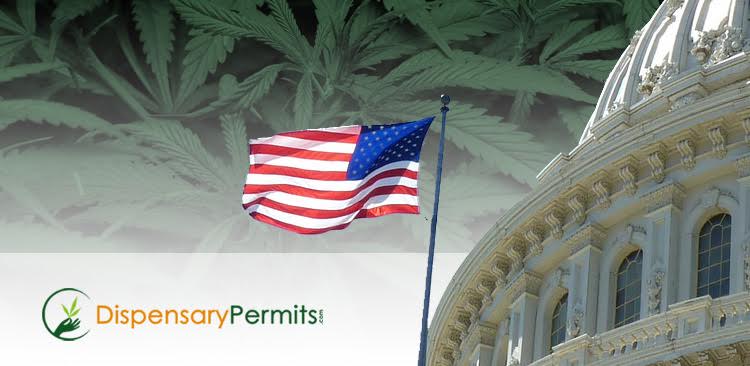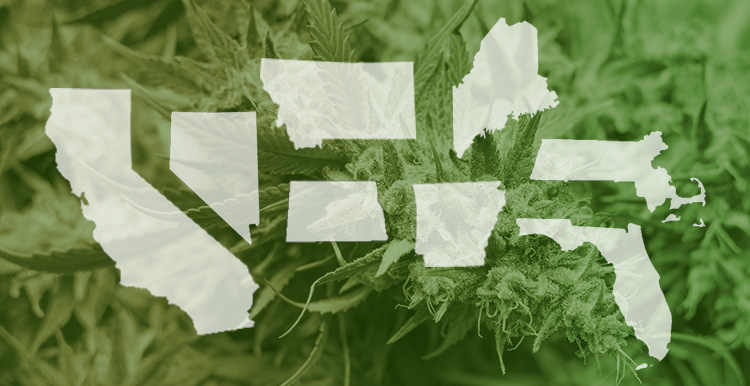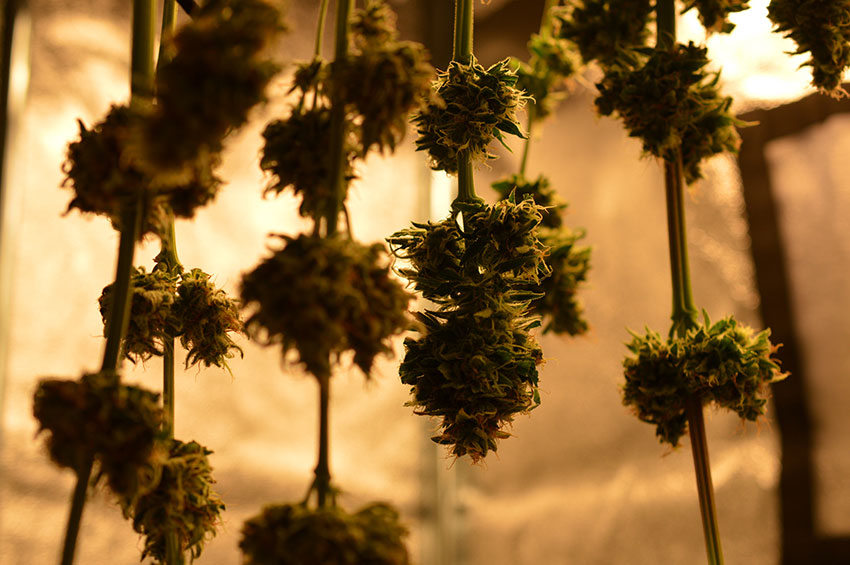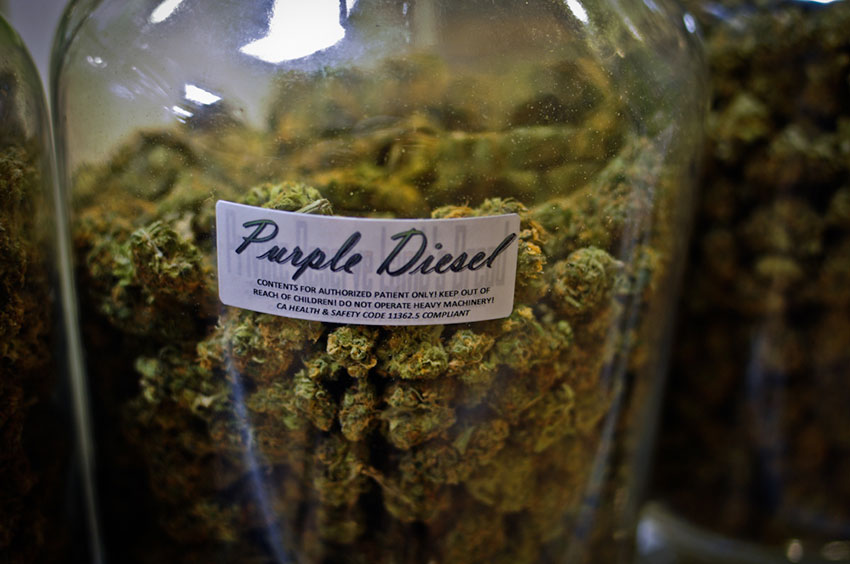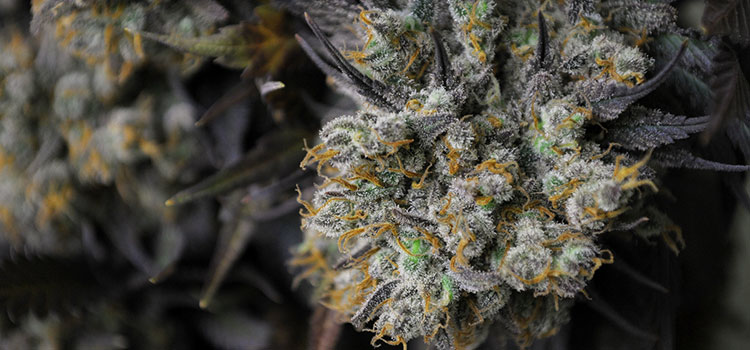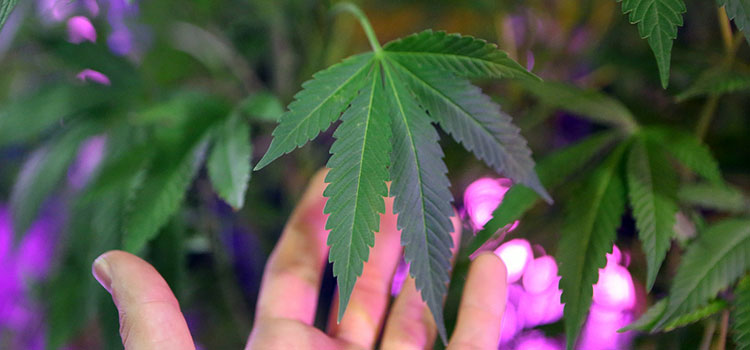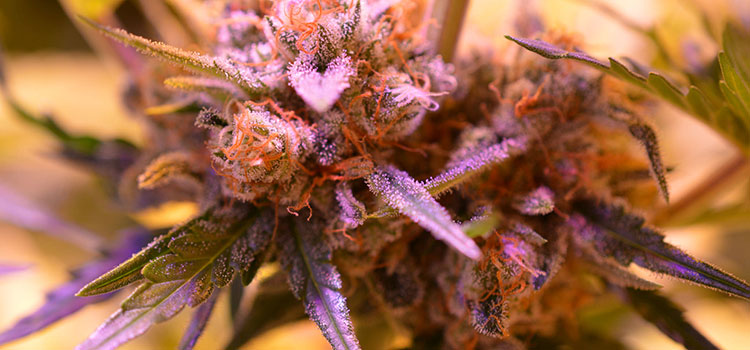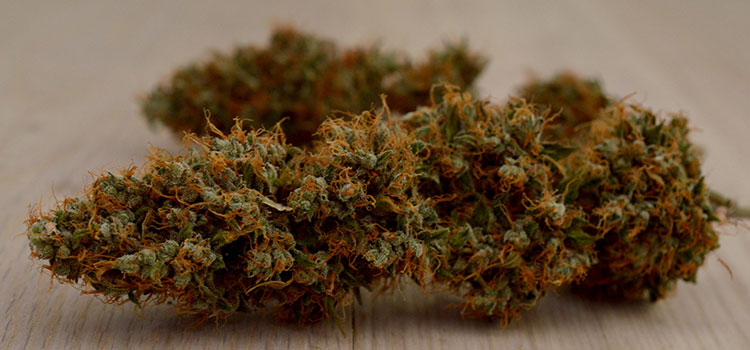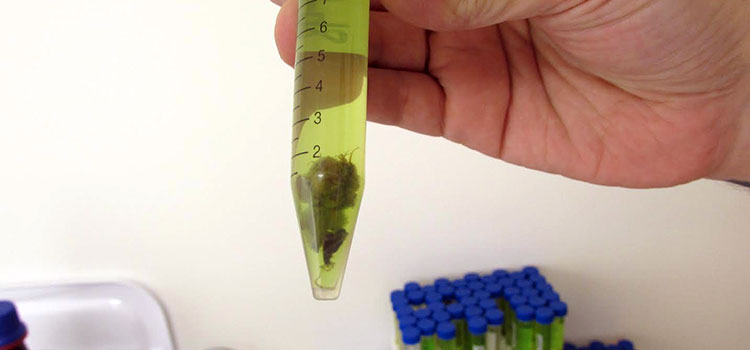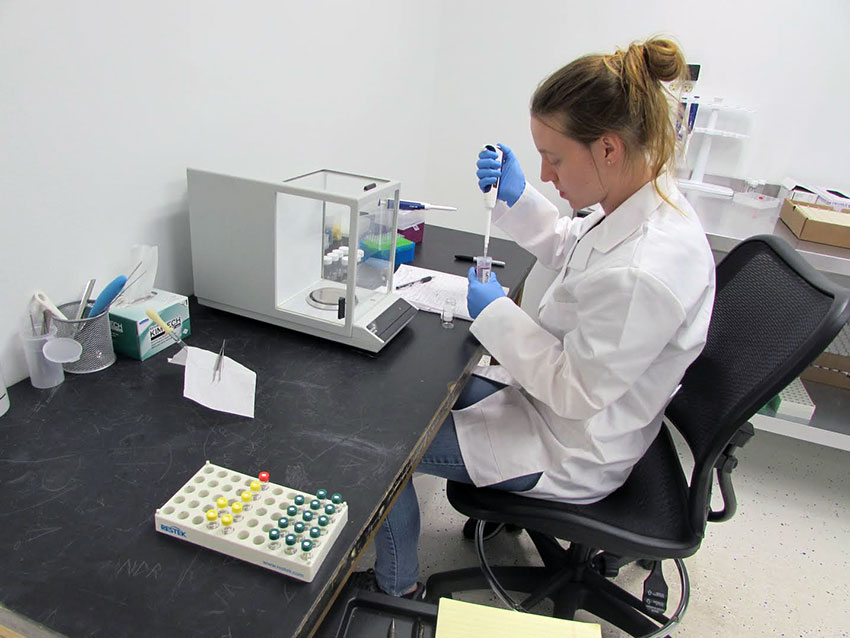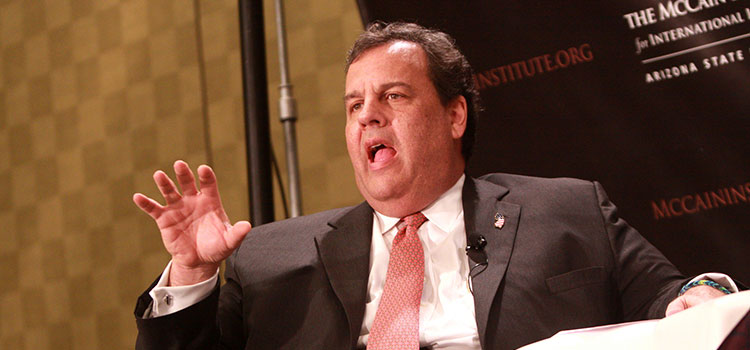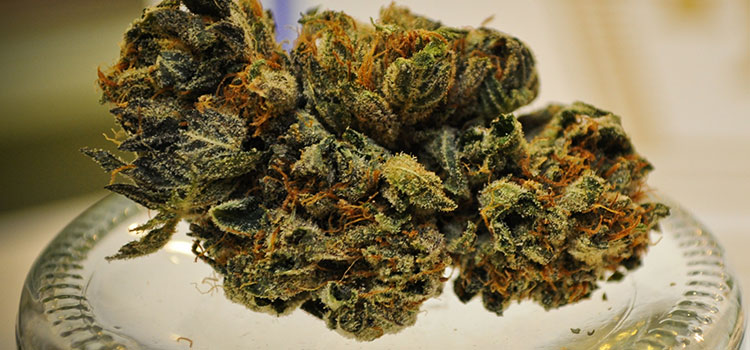Danielle Keane is the Political Director of NORML, the National Organization for the Reform of Marijuana Laws. She recently joined our podcast host TG Branfalt for a discussion about the upcoming election season and the unprecedented opportunity that it presents for the cannabis legalization movement. In the upcoming election season, nine states will be voting on a cannabis legalization measure. Recreational initiatives will be on the ballot in California, Nevada, Arizona, Maine, and Massachusetts. In Florida, Arkansas, Montana, and North Dakota, voters will have an opportunity to pass medical initiatives.
In this interview, TG and Danielle discuss the specific details of many of the laws that will be determined by voters in November, including what NORML’s position is on the parallel ballot initiatives in Arkansas. Danielle also discusses some potential reasons why pro-legalization forces have out-fundraised prohibitionists in many areas this year, the bittersweet but unavoidable process of passing flawed legislation and working to improve it once it has passed, as well as the fact that going forward, most states will have to pass legalization measures via the legislature and not via the voters due to how their laws are written.
Note: this interview was recorded before the recent revelations about some Florida ballots omitting the medical cannabis initiative. Please spread the word if you live in Florida or know anyone who does!
Listen to the podcast below, or keep scrolling for a transcript of the interview.
Subscribe to the Ganjapreneur podcast on iTunes, Stitcher, SoundCloud or Google Play.
Listen to the podcast:
Read the transcript:
TG Branfalt: Hey there, I’m TG Branfalt and you are listening to the Ganjapreneur.com Podcast. The Ganjapreneur.com Podcast gives us an opportunity to speak directly with entrepreneurs and experts who are working on the front lines of the industry to normalize cannabis through responsible business, education, and activism. As your host, I will do my best to bring you actionable information to help you plan, grow and manage your cannabis business.
Today, my guest is Danielle Keane, political director for the National Organization for the Reform of Marijuana Laws better known as NORML. Keane has served as the political director for NORML since 2015. In that role, she manages local, state and federal lobbying efforts and promotes the organization’s political outreach efforts. Welcome to the show. Thank you for joining us today. How are you?
Danielle Keane: Thank you so much, TG. I’m doing great. Happy to be here.
TG Branfalt: Today we’re going to touch on a lot of different states that were voting on cannabis measures this election cycle. In total, there are 5 states up for recreational legalization and 4 states will be voting on medical cannabis initiatives. I want to start with Maine which is voting on recreational because they’re taking a somewhat unusual approach by creating the new industry under the Department of Agriculture instead of the Department of Liquor or an entirely new cannabis department. What is your take on this approach?
Danielle Keane: There isn’t too much significance in treating cannabis as an agricultural product and having industry oversight through the Department of Forestry versus another state department. This situation is sometimes more voter friendly. People feel more comfortable if marijuana isn’t being associated with a liquor or alcohol control board which we often see in other states. They’ll feel better if it’s in a separate regulatory framework.
That’s a decision that the voters should decide, but when it comes down to it, there’s still going to be a licensing process for businesses and administrative rules for the recreational program the same way if it were to be treated agriculturally or not, but the polling in Maine looks really strong. I believe there’s a margin of support of about 53 to 38% according to a September poll. Treated agriculturally or not, I think we’re going to see that passed.
TG Branfalt: How does this set up with the Department of Forestry, does it differ at all from its national counterparts?
Danielle Keane: It doesn’t really. Again, not in too significant of a way. Again, many of those administrative and regulatory duties are the same despite its classification. Limits on cultivation, allowing municipalities to regulate the number of dispensaries, and licensing — they’re all responsibilities of whatever department oversees the program, forestry or not.
TG Branfalt: If Maine were to pass, which other states could that influence or encourage to pass similar measures?
Danielle Keane: Hopefully other states in New England, but specifically following suit treating as an agricultural product or not, I’m not sure too many.
TG Branfalt: Okay. On the opposite side of the country we have California who’s recreational industry is estimated to be worth about 1.3 billion by 2018 and about 4 billion by 2020. What does legalization in California, the country’s most populous state mean to legalization efforts nationally?
Danielle Keane: California is absolutely, no doubt about it, definitely the state everyone will be looking at to move into a fully legalized and regulated market come November. Just as you mentioned, it is the most populous state in our country. I think something like 1 in 6 Americans lives in California. They have largely lead reforms in the marijuana movement in the past.
They were the first state to pass a medical marijuana law back in 1996, which sparked modern medical marijuana programs that we see around the country today. You are correct in that if California approves AUMA or the Adult Use of Marijuana Act or proposition 64 then it could definitely inspire a wave of other reforms just as we’ve seen California do in the past.
That’s not only on the state level. Realizing that because California is so large, they have the most representation on the federal level and in Congress. Hopefully, we’ll have an even larger representation in Washington DC of law makers with home states that have legal regulated adult use markets. I think you’ll find that they will be more open to protecting these state laws when that comes up in federal law. Of course we already know actually from NORML’s congressional score card that California has already the most friendly federal delegation in Washington DC.
TG Branfalt: So, still despite kind of the trajectory of the industry if California does legalize it recreationally, the proposition itself has drawn the ire of some pro-cannabis activists. Some say we’ll dismantle the medical marijuana program and what is your take on what it would do to the medical program as well what might you say to those activists?
Danielle Keane: Of course. As we all know, California has been involved in the marijuana industry both legally and not for quite some time and so because of that, we have so many different stakeholders that have been participating in this for longer than any of us have seen these reforms come about. This diverse set of interests, there’s no surprise that an initiative like this doesn’t please everyone. It would be impossible to draft a marijuana legalization initiative in a complicated state such as California that hits the perfect compromise on every possible negotiation.
The first thing activists should now is that AUMA, or Prop 64, is not the last word. There will be continued further changes in state and federal law that will guarantee affordable medical access, protect employment and housing rights, facilitate banking and allow interstate commerce. The second note is that AUMA’s regulatory provisions are largely patterned on the Medical Marijuana Regulation and Safety Act which was the package of bills that was recently passed by the California legislature and became effective January 1st of this year.
These provisions are sorely needed. California’s medical marijuana program was unregulated and often the example for other states reforming their laws on what not to do. I think California is in an important time right now of hopefully ushering in full legalization and adapting those new laws to the regulation of the medical program. Things are changing.
I think in the next few years local municipalities will be figuring things out. The state will too and I encourage activists to be a part of that conversation. Get into contact with your local municipalities, join up with other activists that feel the same way you do. NORML has a number of California chapters around the state and I encourage you to try to make these laws work for you. Like I said, part of AUMA or Proposition 64 in California allows for most provisions to be modified by the legislature. This isn’t the end of changes for California.
TG Branfalt: In many states, there seems to be legislative changes happening. In Michigan for example, they just overhauled their medical marijuana infrastructure. In Florida, they’re trying to do the same via an amendment. Do you think that this is a smart way to legislate cannabis and marijuana as to kind of put something out there that gets the ball rolling and then go back and make the necessary changes?
Danielle Keane: I don’t think it’s an ideal way but I think it’s unavoidable. I think that it’s a compromise between having the legislature enact the laws that they believe are necessary. Then on the other side, having citizen driven ballot initiatives pick up the slack and enact policies that the legislature isn’t acting on. I think it’s a balance that us being played out through states around the country. Not everywhere, because not every state has the ability to have a citizen ballot initiative, but a lot of these states, I think it’s a successful way to find compromise between voter opinion and legislative action.
TG Branfalt: On that note, we’re going to take a short break. You are listening to the Ganjapreneur.com Podcast.
Being a cannabis entrepreneur comes with a lot of stress, and while you are busy developing and running your business, managing a team of loyal employees, and working to build a sustainable venture, the last thing you should need to worry about is your personal finances.
With Latitude Financial Group, you will have the tools you need to manage your finances efficiently and easily, without all the hassle. Latitude Financial Group provides a platform that shows you everything you have, all in one place, and that stays current without time-consuming updates and synchronizations. You’ll gain access to a free one-hour consultation and an award-winning financial management software suite that will empower you to better visualize and manage your finances.
With Latitude, you can form a relationship with an unbiased, fee-based, objective, professional personal advisor who understands your unique concerns, who listens to your needs, and who has years of experience applying financial solutions to the most complicated of financial scenarios.
Based in Denver, Colorado, the Latitude Financial Group team will work with you in ways that fit YOUR life. Whether you prefer a face-to-face meeting with an advisor at one of their TWENTY metro Denver area locations, a phone call, Skype meeting, or chat, they can help you work to achieve your financial goals.
So, if your personal or business finances are causing you stress, if you are losing sleep wondering if your financial future is secure in the career path you have chosen, or if you want to work with a financial advisor who is interested in helping you become successful in your business endeavors, give Latitude Financial Group a call and start being proactive about your financial future today.
Don’t wait: Latitude is offering the first 10 listeners one year of free access to their award-winning software platform. Go to RollingInGrass.com, that’s RollingInGrass.com, to get latitude in your financial life.
*Securities offered through Securities America, Inc., a Registered Broker/Dealer Member of FINRA / SIPC. Advisory services offered through Securities America Advisors, Inc., an SEC Registered Investment Advisory Firm. Scott Cody, Daniel Grote Representatives, Latitude Financial Group, and Securities America are unaffiliated. Latitude Financial Group and the Securities America companies are unaffiliated.
TG Branfalt: Welcome back. You are listening to the Ganjapreneur.com Podcast. I’m your host TG Branfalt talking to Danielle Keane, political director for NORML. Before the break, we were discussing the AUMA, the Adult Use of Marijuana Act in California but now we’re going to move back to the East Coast to Massachusetts where so far seems like the ballot initiative vote could go either way. According to our poll aggregates, the majority approve of the measure but it still has less than 50% of voter support. We’re here talking to Danielle Keane, political director for NORML. What do you think that this polling data says about the initiative’s chances in Massachusetts and are the opinions of powerful lawmakers such as Governor Charlie Baker and Boston Mayor Marty Walsh having any impact on the opinions of voters?
Danielle Keane: I definitely think this is going to be a close one come election day. I think the latest polling datta at I looked at which was a September WBZ-UMass Amherst Poll put support at a 53 to 40% lead with about 7% still unsure. However, within that poll support for the measure was found in all age groups except of course for voters over 55 years old. I believe the measure could pass if voter’s turnout to the polls, mainly millennial voters that typically don’t turn out to the polls. If they do turnout and hopefully they do, I think this measure could be successful but like you mentioned.
Unfortunately, there is a well organized opposition group in this state with endorsements from powerful lawmakers like the governor and the mayor of Boston but Massachusetts is used to having a marijuana related amendment on the ballot. In 2008, they voted to decriminalize possession of marijuana and in 2012, they legalized medical marijuana. Both of those measures passed by significant margins, I think about 30% which the legalization initiative definitely does not have that margin. It may just be that Massachusetts voters are still warming to the idea of a legal market. It’s a wonder why though. With decriminalization in place. it’s a shame for a state not to benefit from the tax revenues associated with the regulated above ground market.
I think as we get closer to the election, if we have any listeners living in Massachusetts, now is the time to get active in supporting the initiative. Reach out to friends and family and make sure they are aware of the question and let them know why you’ll be supporting the measure. Voters and marijuana activist definitely need to mobilize in Massachusetts if we want to see it succeed.
TG Branfalt: You had mentioned millennial voters who very strongly supported Bernie Sanders in his run for the Democratic nomination. Do you think that it will be the millennial voters that are going to make a difference in whether or not some of these initiatives pass?
Danielle Keane: Absolutely. I think the millennial voters are the ones that are going to be the deciding factor. They’re the ones that typically do not show out to the polls. Obviously in mid-term election years, you’ll see elections sway way more Republican. You hardly see any marijuana related initiatives on ballots during those years because it’s just not a good strategy. We absolutely need millennial voters to come out and support these marijuana related initiatives if we want them to succeed.
TG Branfalt: Back west, we’re going to talk a little bit about what’s going on in Nevada. This is actually the first appearance for legalization on the ballot in that state. Some might consider Sin City a slam dunk for legalization, but Oregon didn’t successfully pass their legalization measure on its first try in 2012. Do you think that the voters are going to take the leap on the first shot that they have or do you think that they’ll be trying again in 2018?
Danielle Keane: That is hard to say. I definitely don’t want to discount voters by saying it won’t happen until 2018 just yet, before they get a chance to vote on it. I believe polling in Nevada is putting support at around 52%. Again, pretty close and I think it’s clear to everyone how fitting marijuana legalization would be for Nevada and to be honest I personally think that it’s going to pass.
For what it’s worth, the state’s largest newspaper, the Las Vegas Review Journal did endorse this question during the petition collecting process. Unfortunately, since then Sheldon Adelson who is a casino mogul and anti-marijuana advocate purchased the Las Vegas Review Journal and forced the editorial board to reverse their support.
I think the paper’s first position really signifies where voter sentiment is. Also looking at how close Nevada is to states like Oregon and Washington, and there’s just one state between them and Colorado, they have to be watching these other states flourish with their legalization programs and want to get their fair share. I think this is something we’re going to start seeing happening around the country as more and more states move forward with these legalization initiatives. Other states are going to have to move forward with their on reforms.
TG Branfalt: You had mentioned Adelson, the casino mogul who’s actually … I mean you know this, he’s been funding prohibition pretty much every chance he gets. He just gave a million dollars to the anti-campaign in Florida. However, from what I’ve seen, the pro-camps are largely out fundraising the anti-camps even with billionaire casino moguls getting involved. I mean why do you think that this shift is happening to where the proc-campaigns are out funding the anti-campaigns?
Danielle Keane: That’s a great observation and a really sure sign that the time is now to legalize marijuana. I think people around the country are starting to see the dollar signs in their eyes. For better or for worse, There is just money to be made in the marijuana market. I think that is luckily taking shape in people investing in these ballot initiatives.
They’re not waiting until it’s legal to invest their money. They want to be the first ones in and so therefore they’re going to start investing in getting it legal. I think it’s a great thing for the marijuana movement. I think it comes with a number of pros and serious cons that people need to be aware of and evaluate after these states reform their laws and they start to establish markets. For now, I welcome all of the help and financial help from these investors to get these laws changed first.
TG Branfalt: I’m TG Branfalt, here with Danielle Keane, political director for NORML. We’re going to take one more short break and when we get back, we will discuss the medical initiatives on the ballot.
At Ganjapreneur we have heard from dozens of cannabis entrepreneurs who have encountered the issue of “Canna-bias”, which is when a mainstream business — whether a landlord, bank, or some other provider of vital business services — refuses to do business with them simply because of their association with cannabis. We have even heard stories of businesses being unable to provide health and life insurance for their employees because the insurance providers were too afraid to work with them.
We believe that this fear is totally unreasonable, and that cannabis business owners deserve access to the same services and resources that other businesses are afforded, that they should be able to hire consultation to help them follow the letter of the law in their business endeavors, and that they should be able to provide employee benefits without needing to compromise on the quality of coverage they can offer.
This is why we created the Ganjapreneur.com Business Service Directory, a resource for cannabis professionals to find and connect with service providers who are cannabis-friendly and who are actively seeking cannabis industry clients. If you are considering hiring a business consultant, lawyer, accountant, web designer, or any other ancillary service for your business, go to Ganjapreneur.com/businesses to browse hundreds of agencies, firms, and organizations who support cannabis legalization and who want to help you grow your business. With so many options to choose from in each service category, you will be able to browse company profiles and do research on multiple companies in advance, so you can find the provider who is the best fit for your particular need.
Our business service directory is intended to be a useful and well-maintained resource, which is why we individually vet each listing that is submitted. If you are a business service provider who wants to work with cannabis clients, you may be a good fit for our service directory. Go to Ganjapreneur.com/businesses to create your profile and start connecting with cannabis entrepreneurs today.
Welcome back. You are listening to the Ganjaprenueur.com Podcast. I am your host TG Branfalt talking to Danielle Keane, political director for NORML. I want to talk to you a bit about the medical initiatives. First, I want to start with Arkansas where voters are in a particularly unique position due to the fact that they will have 2 initiatives to choose from in November. According to a September 25th,
According to a September 25th, poll by Talk Business & Politics and Hendrix College, 49% said they would support the amendment which does not include grow your own provisions. 43% were opposed. While 36% said they would support the act which includes grow your own provisions for those with hardship certificates, compared to 53% opposed. If both are passed, the one with the more votes supersedes the other.
Do you guys have a preference on which measure is enacted here?
Danielle Keane: We do. Last month, NORML’s board of directors did vote to endorse the 2016 Arkansas Medical Cannabis Act, which is the measure that does include grow your own provisions. For full disclosure, the attorney representing the Arkansas Medical Cannabis Act is a long-time NORML legal committee member, John Wesley Hall from Little Rock.
It comes down to this. NORML is a marijuana consumer rights group. We represent the interests of the marijuana consumer. The other initiative, the Arkansas Medical Marijuana Amendment is far more restrictive than the first in terms of the list of conditions for which marijuana could be recommended and obviously it does not permit personal cultivation. As a result, the NORML board felt the Arkansas Medical Cannabis Act is a more consumer friendly proposal and did elect to endorse it.
TG Branfalt: Why do you think that voters are supporting the amendment more so than the act at this point.
Danielle Keane: That’s a really good question I have myself. I’m not sure if it comes down to voter education, if one campaign is doing a better job getting their message out to the voters and is truly informing them honestly about their initiative. I don’t have an answer for that. It would seem to me that more people, marijuana consumers would support the Arkansas Medical Marijuana Amendment. I’m just not sure.
TG Branfalt: The act supporters for Arkansas Compassionate Care have said that if both initiatives make the ballot, it’s almost certain that both will fail. Do you see this as the likely scenario in the state?
Danielle Keane: Unfortunately it’s a possible outcome. Essentially when you have 2 competing initiatives on the ballot you’re going to split the vote in half forcing neither of the measures to pass. What we do know in Arkansas is that support for the measures is really, really high when voters are asked about one or the other when faced with just one marijuana initiative they absolutely no doubt it support it. However, when voters are asked about both at the same time, support for those is significantly lower. It’ll be interesting to see how this one turns out.
TG Branfalt: According to your political score card, Arkansas doesn’t have a lot of legislative friends regarding medical cannabis.
Danielle Keane: You are correct. Arkansas’ delegation is not good whatsoever. It would be really, really great for them to take some action this election day by passing one of these initiatives.
TG Branfalt: North Dakota’s medical marijuana proposal would require the compassionate care centers to operate as not for profits. It would establish a compassionate care fund that comprise of donations fees and civil penalties which would provide funds for the program’s operations. What is your opinion on this model, is it viable? Are there downfalls?
Danielle Keane: Often times this requirement for medical marijuana dispensaries to operate as not-for-profits is related to the need for transparency. It’s also used to keep the price of medical marijuana down and accessible for a patient no matter their ability to pay. For that reason, I think it’s a good model. It does however need to be sustainable and obviously not at the expense of others in the state.
For example, using civil penalties to fund it. We don’t want to see an increase in civil penalties related to marijuana possession or use in a public place just so that the compassionate care centers can operate. I don’t believe it’s the perfect model and I think the state will have a warming period where overtime they’ll learn exactly how this is going to work out but we’ve seen it in other states and I think it’s a good place to start.
TG Branfalt: Have those other states evolved their programs into operations that make money?
Danielle Keane: Yes. A not-for-profit doesn’t necessarily mean that they cannot make a profit, it just means they need to be transparent about it and they have a cap for those but we have seen successful nonprofit medical dispensaries.
TG Branfalt: A not-for-profit model will certainly provide a lot of job opportunities and medicine for people who need it. That sounds like it would be a good place to start for North Dakota. Let’s jump topics again and talk about Florida. Florida is unique. Their program is very limited medical marijuana program, just took effect essentially and the centers just began to open in the summer. Can you outline Florida’s constitutional amendment proposal and how it differs from the current system implemented this year and what impact might it have on patients who are presently enrolled?
Danielle Keane: Absolutely. You’re correct in that Florida’s medical law that is currently in place and just took action is very, very restrictive. It’s a medical CBD law that allows for patients who are suffering from only cancer, muscle spasm, seizures, amd terminal illness to access CBD products that essentially don’t have any THC in them. These patients, they do not have access to the full marijuana plant and therefore they don’t have access to the full therapeutic potential found in marijuana.
This constitutional amendment, Yes on 2, Would essentially just expand upon the current Charlotte’s Web law. It would allow significantly more patients with a variety of ailments access to an increased variety of marijuana, most notably it allows for people suffering from chronic pain which is a really common ailment and obviously they’ll expand upon the marijuana that they’re currently growing to include high THC strands.
I’m not sure it would have any detrimental effect on patients that are presently enrolled in the program. These patients are already accessing their medicine. If Yes on 2 were to pass, it would simply expand upon who is eligible for the program, what marijuana products patients will have access to, and obviously an increase to accessibility with more growers and distributors.
TG Branfalt: It would put a little more on par with, say, New York program which while still limited … Actually New York is a really bad example. More of a Michigan type system.
Danielle Keane: Yes, exactly. With NORML, we classify medical marijuana programs to 2 degrees, a regular medical marijuana program where there is a variety of qualifying conditions and there’s a variety of marijuana products and potencies available for the patients. Then the other programs, we classify as CBD programs where patients only have access to CBD products, CBD standing for cannabidiol which is the non-euphoric part of cannabis plant. If Yes on 2 were to pass, Florida’s medical marijuana program would go from a CBD medical program to more of a general medical marijuana program that you find around the country.
TG Branfalt: In Montana if I remember correctly, they went from originally having a full medical cannabis market to a much tighter CBD only market after the state crackdown on them. Is that accurate?
Danielle Keane: Not exactly. The situation in Montana is a very confusing scenario for medical marijuana users and supporters. For the past 5 years, a certain bill that was passed by the legislature was involved in a number of legal issues and therefore while it was undergoing all of this legal attention, key provisions of that bill went unenforced. Earlier this year, 2016, a court ruled in favor of upholding that law that was under this legal scrutiny.
What that law does is it limits medical marijuana providers to selling marijuana to a maximum of 3 patients. Prior to this obviously there was no limit on the number of patients a provider could sell to. Before this ruling, this year, this provision was obviously not being enforced and patients had readily access to medical marijuana. Luckily after the ruling, advocates in the state jumps into action and started immediately collecting signatures to place medical marijuana initiative on the ballot.
That is now known as I-182 or the Montana Medical Marijuana Initiative. All the initiative seeks to do is to repeal that limit of 3 patients per each license provider. It allows a number of other things. It allows providers to hire employees, to cultivate, dispense, and transport — all of that good stuff. Essentially the program as it was once known can go back to that if voters in the state approve this initiative.
TG Branfalt: How do I want to put this nicely? It’s a unique rebellion against them decimating that system.
Danielle Keane: Yes, absolutely. It’s a very impressive feat that advocates in Montana got together, organized quickly after this court ruling in February of this year to get this back on the ballot and I really hope that it passes because they definitely deserve it.
TG Branfalt: Here we are, it’s October 2016 and we have 9 marijuana ballot initiatives at one time. A court ruled that the federal government can no longer use federal funds to crack down on cannabis businesses, legally operating under state-run programs. The FBI reports that possession arrests or at their lowest point nearly a decade, but at 574,641, that number is still greater than 0 which is still too many. Is the tide shifting here? Does 2016 — are we shifting getting to a more normalized cannabis culture?
Danielle Keane: Absolutely. There is no doubt that the tide is definitely shifting and it actually has been for a number of years already. About 68% of millennials sau marijuana should be completely legal and 50% of baby boomers also favor legalization. 1 in 8 Americans or 13% now report that they currently smoke marijuana according to a recent Gallup poll which is nearly double the number of current users or 7% found by Gallup just 3 years earlier.
43% of Americans acknowledge that they have tried marijuana at some point in their lives and 1 in 5 adults under 30 years of age regularly use marijuana. There’s just no doubt that as millennials are aging and our older comrades are dying, voter opinion is so in favor of marijuana legalization. I do however want to point one thing out about the recent court ruling that you mentioned, the court did uphold a budgetary amendment that prohibits the Department of Justice from cracking down on cannabis businesses that are legally operating under state run programs.
However this was an annual budgetary amendment approved by congress, but it has to be passed through the budget every single year. So that one little protection for these legal businesses has to be reauthorized every year and unfortunately that provision which was passed the past 2 years has not yet been reauthorized for next year.
NORML has an easy to use take action tool on our website that you can contact your federal lawmakers and tell them that they need to pass this protection again this year. If you want to take action on that you can visit our website but there’s no doubt that the tide is shifting. In 2016, it’s such an exciting year for marijuana law reform,
TG Branfalt: Despite the shifting tide the only 2 presidential candidates talking about legalizing cannabis federally are both third-party candidates, Jill Stein from the Green Party and Gary Johnson from the Libertarian Party. Is marijuana still a fringe issue when it comes to politics? You have progressive Democrats who haven’t discussed at all legalizing on a federal level. Then you have the Republicans who are obviously just going to keep doing nothing. I’m wondering what is your take on that?
Danielle Keane: I’m not sure it’s a fringe issue. Both Hilary Clinton and Donald Trump, the nominees for president have been asked about their stance on marijuana legalization a couple times. You are correct though that neither of them endorse a full federal legalization. But more importantly will they allow, if either of them were to be in office, will they allow states to move forward with their own reforms free from federal interference?
Luckily, both candidates have said that they would allow that. Of course Clinton has doubled down on her positions endorsing medical marijuana and calling for more research into its effects but to be honest, Trump has been a little bit all over the place on the issue. He said that he would let states move forward free from federal interference, however he associates himself with a number of high profile politicians such as Chris Christie that have been very opposed to marijuana reforms.
It’s a little but unsettling if Trump were to be in office. He could appoint someone such as Chris Christie to an important cabinet position, but in general they’re in the same position which is, again, they’ve acknowledged marijuana as an issue. They’ve stuck their foot in the sand in terms of their position, but I do give them credit in acknowledging it and taking a position.
TG Branfalt: You had mentioned Chris Christie and now in New Jersey a lawmaker has proposed legislation that would regulate marijuana like tobacco. First of all, I’ve been covering public policy for several years and bills like this sometimes get stalled in committee or they get voted in one house and not the other. Do you see this proposal in New Jersey having any chance on getting to the governor’s desk passed?
Danielle Keane: The key words were what you just said at the end. Not only does the measure need to pass both chambers, the house and the senate but it eventually ends up on the governor’s desk who has to sign it in order to become law. Obviously with Chris Christie as governor. I can pretty surely say that if legalization bill were to end up on his desk, he would not sign it whatsoever.
With that being said, the measure is a really common sense proposal that was actually introduced by arguably one of the most conservative members of New Jersey’s delegation which is pretty ironic but of course welcomed. We are supporting that legislation on our website if you want to contact your members in New Jersey to tell them to support it, check that out.
We will do our best to support it however, this proposal actually makes it two legalization pending proposals in New Jersey. The first one has been through the chambers for quite a while. No action has been taken so it’s tough for me to say if the other one will be successful, chances are unfortunately not. Again even if it were, it would end up on, unfortunately, Governor Christie’s desk which doesn’t bode well either.
TG Branfalt: If just the ballot initiatives pass, we would have 9 states plus DC. With legal cannabis, we’d have 27 states with some form of medical marijuana available. If legalization did run the table in November, do you think we could expect any more states in 2018 and 2020 or are those remaining states just not ready?
Danielle Keane: That’s a good question. It’s hard to gauge where some states are in this process. It obviously takes a state a number of years to prepare for this move. This is not something where voters in the states just wake up on election day and now they’re faced with a legalization question. It has to build up. I think even more exciting rather than more ballot initiatives in 2018, in 2020 is the idea of a state legalizing marijuana through the legislature rather than the ballot.
This is very, very important in the coming years because only 18 states allow voters the right to amend their state constitution through the ballot initiative process. Most states will have to legalize through legislative means.
TG Branfalt: Peer into your crystal ball for me. Which state might possibly be next to legalize it legislatively?
Danielle Keane: That’s a good question. I’m going to have to say Vermont. Vermont has come very, very close, several times over. They’ve been having this conversation for years. Unfortunately, it hasn’t happened yet but they have the support of their governor which is really important obviously and they’ve tried it over and over. It’s just a matter of finding that consensus through both chambers and through both parties. I’m really keeping my fingers crossed for Vermont.
TG Branfalt: Now, before we wrap up, I just want to touch base on the congressional scorecard from NORML because I know that you put a lot of time and effort into it personally. Was there anything that you discovered when you were researching these members of congress that was particularly shocking and what is the overall goal of the project?
Danielle Keane: Absolutely. NORML did just release an updated 2016 Congressional Scorecard. This is essentially a voter tool that provides a letter grade, A through F to every single member of congress. These are your federal lawmakers, not your state lawmakers and essentially we graded them on a couple of things. We looked at whether or not they introduced or sponsored marijuana related legislation, whether they co-sponsored and supported marijuana related legislation, whether they had the opportunity to vote on any marijuana related amendments or bills and then of course any public comments that they’ve made on the subject.
We gathered all of that information for all 535 members of congress and according to that provided them a letter grade. You know the most surprising thing to me in doing this project was really just looking at where voter sentiment is. I just rattled off a bunch of statistics to you a few minutes ago where it’s very clear that voters are ready for legal marijuana whether that’s on the state level or either reclassifying or preferably declassifying marijuana from the Controlled Substances Act or passing legislation like the CARERS Act which would allow for a significant amount of research to be done on marijuana.
Whatever it is Americans and voters are absolutely ready for the federal government to take some sort of action and yet we just don’t see that. I mentioned earlier describing the score card whether or not any members had had the opportunity to vote on a marijuana related bill. That’s a no for everyone because despite there being about 25 to 30 marijuana related pieces of legislation pending at the congressional level, not one has ever been heard before a committee, not one.
We’ve only ever seen progress in terms of annual budgetary amendment that are related to marijuana. It’s really time that these members of congress looked at who they’re representing. Look at how they feel about these reforms and take some action because there’s just no doubt about it. The voters are ready.
TG Branfalt: I’ve always maintained that the failure to act by our federal government is because that would be them admitting fault — that they were wrong year after year, after year about marijuana legislation. Do you think that this is responsible for this inaction?
Danielle Keane: I think that’s a good idea, but quite frankly I don’t care if they think that they were wrong. It’s time to be aware that you’re not representing yourself in Washington DC or what you want. You’re representing thousands, hundreds thousands, millions of voters in the state that you represent and it’s really, really clear of where the voter stand on this issue. It’s getting to a pretty unacceptable point for inaction.
TG Branfalt: Is there one final message that you would like to give to those constituents in states with initiatives on the ballot?
Danielle Keane: Absolutely. My message is simple and that is just to educate yourself and your friends and family and go out and vote. We need you to vote. NORML has outlines and information on all of the pending ballot initiatives on our website. You can just go to the homepage, norml.org and you’ll get all of the information you need there.
You’re also going to be voting on your members of Congress and your state-elected officials. We can help you learn about your congressional members with our score card. Otherwise you can look up a NORML chapter near you and your state that hopefully has information on your state elected officials. Just please pay attention to what’s on the ballot and vote. That’s it.
TG Branfalt: Danielle, I’d like to thank you very, very much for being on the Ganjapreneur.com Podcast.
Danielle Keane: Thank you so much for having me.
TG Branfalt: You can find more episodes of the Ganjapreneur.com Podcast in the podcast section of Ganjapreneur.com and in the Apple iTunes store. On the Ganjapreneur.com website, you will find the latest cannabis news, product reviews and cannabis jobs, updated daily along with the transcripts of this podcast. You can also download the Ganjapreneur.com app in iTunes and Google Play. I have been your host, TG Branfalt.

